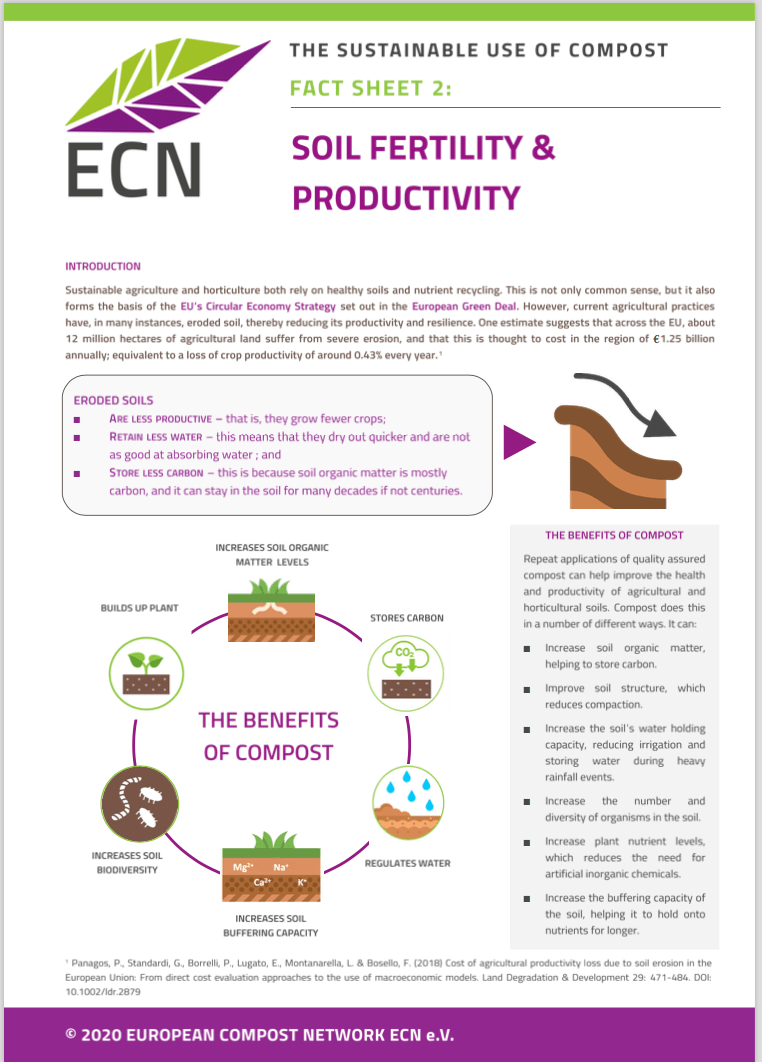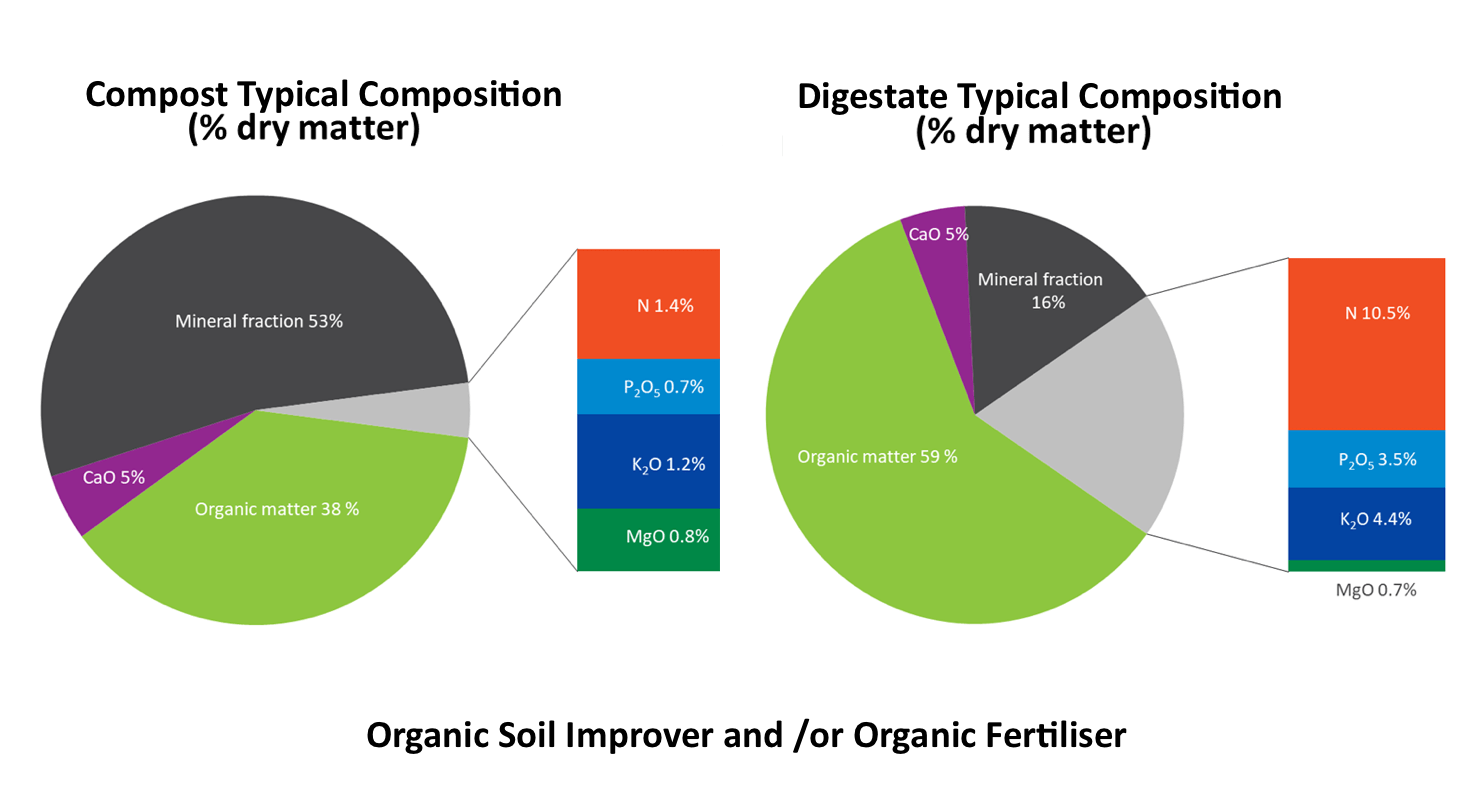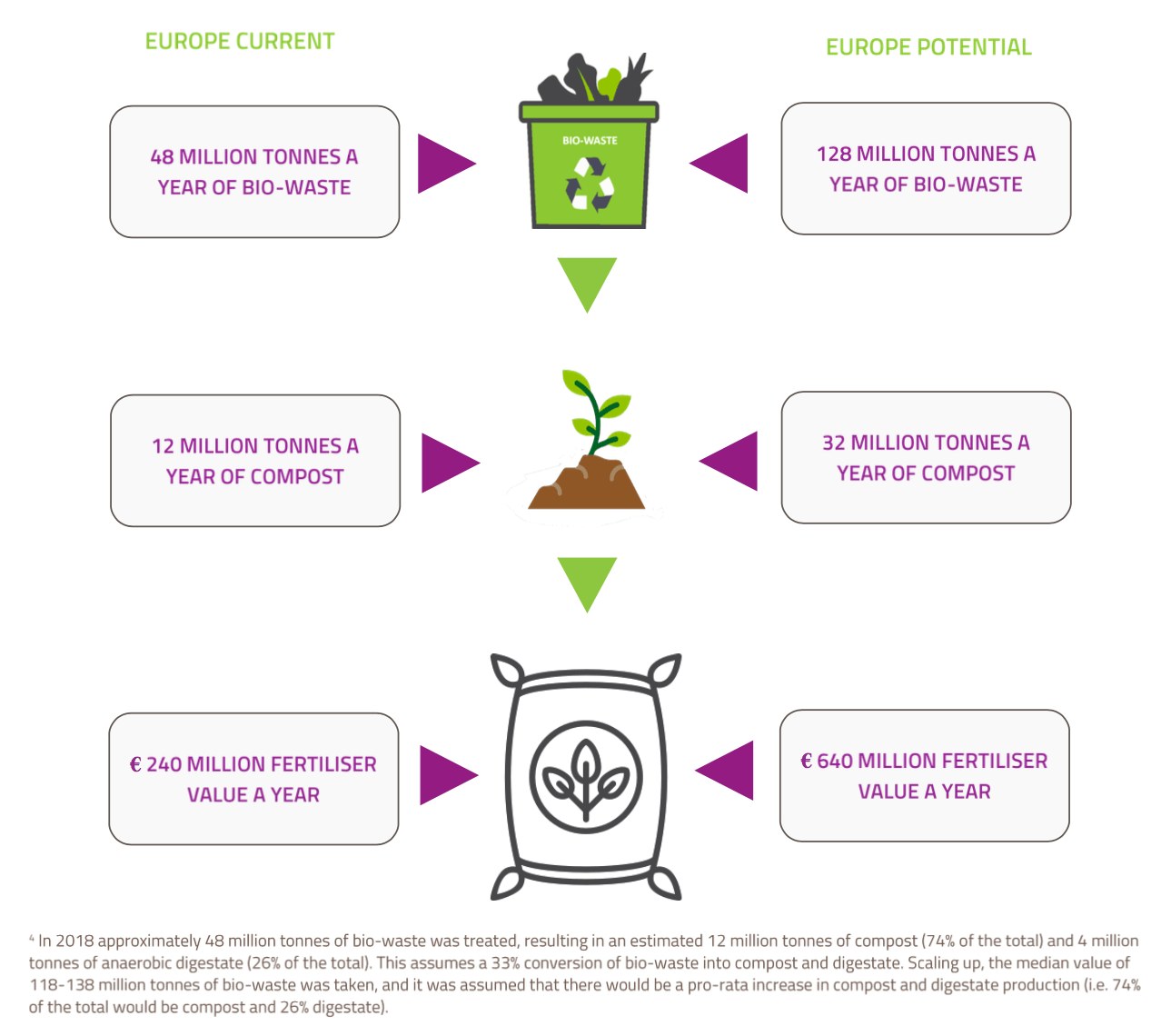 In addition, by applying compost and digestate a basic fertilisation of the soils and plants with nutrients is guaranteed.
In addition, by applying compost and digestate a basic fertilisation of the soils and plants with nutrients is guaranteed.
Compost and digestate are useful sources of plant nutrients, including:
- NITROGEN (N) – which is needed by plants to grow leaves and stems;
- PHOSPHORUS (P) – which is needed by plants to grow roots and shoots; and
- POTASSIUM (K) – which is needed by plants to grow flowers and fruit.
Compost and digestate also have alkaline pH value, which means that it can help reduce soil acidification.
Recycling nutrients in compost and digestate and returning them to soil benefits the environment in a number of important ways:
- It reduces demand for chemically manufactured nitrogen fertilisers – as the manufacturing process is very energy intensive this significantly reduces greenhouse gas emissions, which are thought to be about 1% of total global emissions.
- It reduces emissions to the air and water courses – the organic matter in compost and digestate helps bind plant nutrients, preventing them from being washed into watercourses. Especially nitrogen in compost is bound up with other compounds, it is released slowly over time and helps form a nutrient ‘bank’ in the soil so that the nutrients are present for plant growth for a number of years.
- It reduces mining of elements, such as phosphorus and potassium, and lime – as phosphorus is an EU Critical Raw Material, recycling P helps conserve this valuable resource within Europe.
The Fact Sheet 2 ‘Soil Fertility & Productivity’ of the publication series ‘Sustainable Use of Compost’ can be accessed here.


